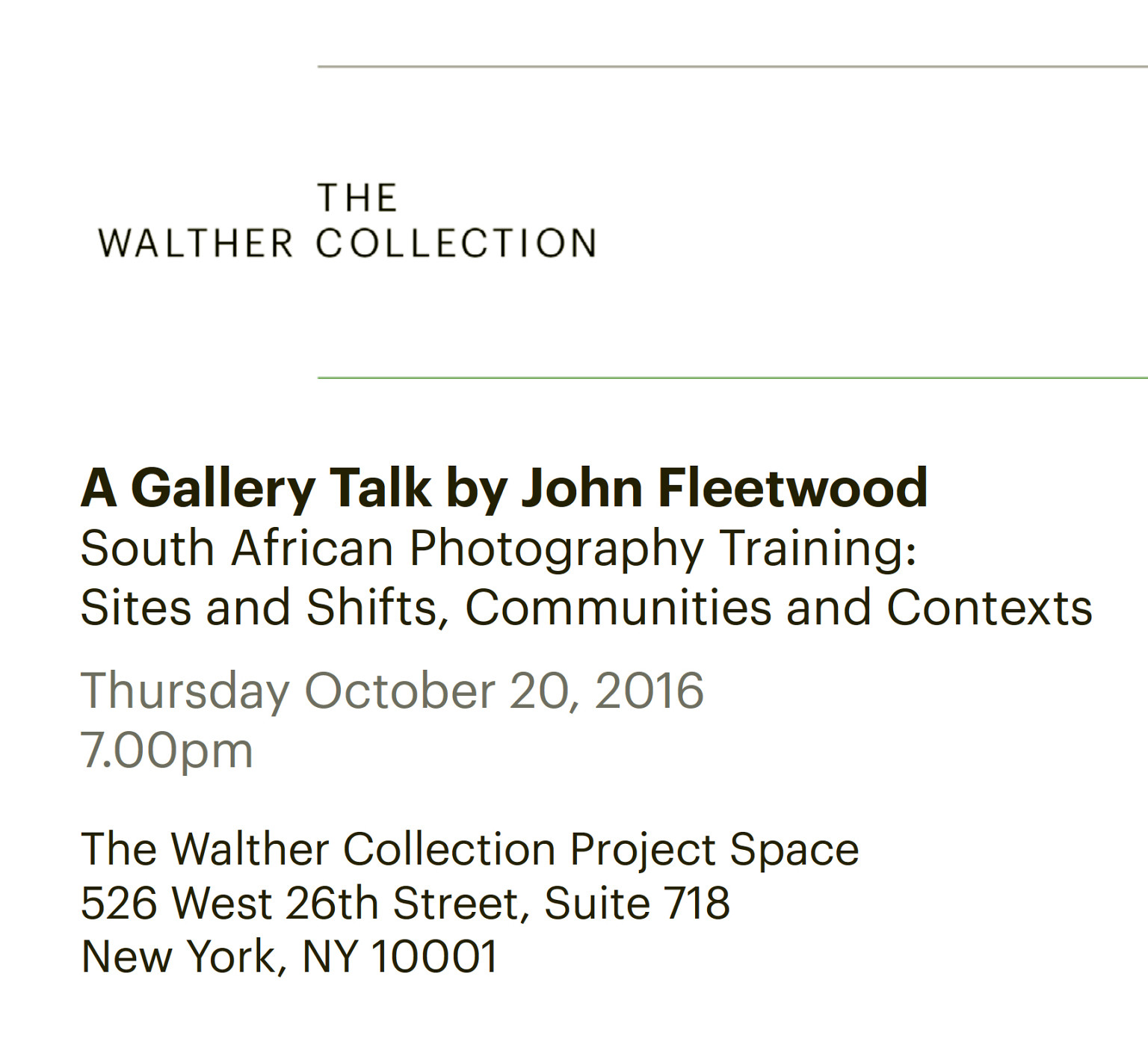South African Photography Training: Sites and Shifts, Communities and Contexts
In context of The Walther Collection’s ongoing interest in contemporary photography and video art from Africa and the African Diaspora, John Fleetwood will give a gallery talk, South African Photography Training: Sites and Shifts, Communities and Contexts on 20 October 2016, 19h00 at The Walther Collection Project Space, NYC.
Fleetwood is the director of Photo:, a platform that develops photography and educational projects, especially with emerging photographers from the African continent. Photography training in South Africa since the late eighties has not only been an agent of social change, but also a platform for community and discourse. Photography training institutions, such as the Market Photo Workshop, have served as training grounds for a significant group of contemporary practitioners including Lebohang Kganye, Sabelo Mlangeni, Mimi Cherono Ng’ok, Musa N. Nxumalo, and Thabiso Sekgala, each of whom have produced works featured in The Walther Collection’s New Photography from Africa series. This talk considers photography training’s role in the building of intergenerational dialogues, collaborative projects, and relationships of connectedness among photographers, and examines the shifts in documentary photographic practice amongst artists of the “Born Free” generation.
The third installment in The Walther Colelction’s multi-year series, Recent Histories: New Photography from Africa, Recent Histories: New Photography from Africa, opened on Thursday, September 22, 2016 at The Walther Collection Project Space in New York. Recent Histories features work by Simon Gush, Délio Jasse, Lebohang Kganye, Dawit L. Petros, and Zina Saro-Wiwa, five emergent figures from a new generation of multidisciplinary, lens-based artists dedicated to exploring African narratives from a diversity of perspectives. Common to their disparate practices is the use and embellishment of documentary modes to portray the vicissitudes of modern life. Engaging an array of sociopolitical concerns—including migration, lineage, the legacies of colonialism and Calvinism, and local custom—the works in the exhibition are so finely attuned to the broader contexts in which they have been made that they might also serve as veritable, if fragmentary, records of our time.
More information: Amy Daniels
Posted 10 Oct 2016

